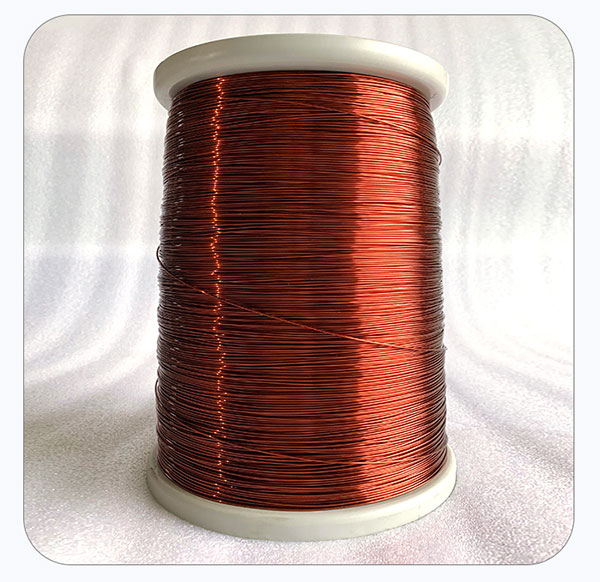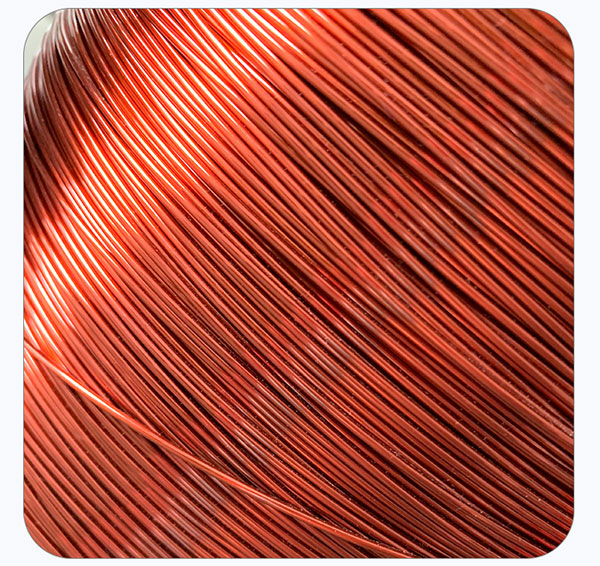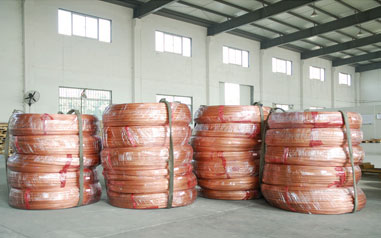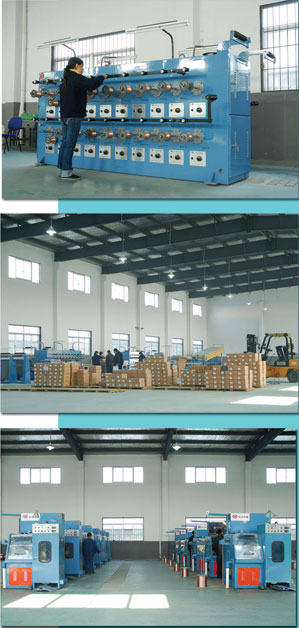Enameled copper clad aluminum wire(ECCA wire) is a wire that has the characteristics of both copper and aluminum.. It consists of an aluminum core coated with a thin layer of copper, typically through an electroplating process. The copper layer provides excellent electrical conductivity, while the aluminum core offers advantages such as lightweight and cost-effectiveness.
Features of enameled copper clad aluminum wire
Electrical Conductivity: The copper coating on the aluminum core provides good electrical conductivity, making ECCA wire suitable for various electrical applications where conductivity is essential.
Cost-Effectiveness: ECCA wire is generally more affordable than pure copper wire due to the lower cost of aluminum. This cost advantage makes it an attractive option for applications where budget constraints are a consideration.
Lightweight: Aluminum is significantly lighter than copper, so ECCA wire is lighter weight compared to solid copper wire. This property is advantageous in applications where weight reduction is desirable, such as in aerospace or automotive industries.
Corrosion Resistance: The copper coating helps protect the aluminum core from corrosion, ensuring the long-term reliability of ECCA wire in various environmental conditions.
Thermal Conductivity: While aluminum has better thermal conductivity than copper, the thin copper coating may limit this property in ECCA wire. However, ECCA wire still exhibits reasonable thermal performance, which can be beneficial in certain applications.
Solderability: ECCA wire can be soldered using standard techniques, making it compatible with common manufacturing processes and equipment.
Flexibility: ECCA wire can be more flexible than solid copper wire, which can be advantageous in applications where flexibility is required, such as in winding applications for motors or transformers.
Insulation: Like other types of electrical wire, ECCA wire is often coated with enamel insulation to prevent short circuits and electrical hazards.
Application of enameled copper clad aluminum wire
Electrical Motors and Transformers: ECCA wire is often used in the winding of electrical motors and transformers due to its good electrical conductivity, lightweight nature, and cost-effectiveness. The wire's flexibility makes it suitable for winding intricate coil configurations, while its thermal conductivity helps dissipate heat generated during operation.
Coil Windings: ECCA wire is employed in a wide range of coil winding applications, including inductors, solenoids, relays, and electromagnets. Its flexibility and excellent electrical properties make it well-suited for creating efficient and compact coil assemblies.
Electromagnetic Components: ECCA wire is utilized in various electromagnetic components such as magnetic coils, chokes, and antennas. Its conductivity and lightweight nature contribute to the performance and efficiency of these components.
Communication Cables: ECCA wire is sometimes used in communication cables for applications like telephone lines, data transmission, and networking cables. Its electrical properties, combined with cost-effectiveness, make it a suitable alternative to solid copper wire in these applications.
Automotive Wiring: In the automotive industry, ECCA wire can be found in wiring harnesses and other electrical systems. Its lightweight construction helps reduce vehicle weight, contributing to fuel efficiency, while its electrical properties ensure reliable performance in demanding automotive environments.
Consumer Electronics: ECCA wire is used in various consumer electronics products such as speakers, headphones, and small motors. Its combination of electrical conductivity, flexibility, and cost-effectiveness makes it suitable for these applications.
Appliances: ECCA wire is employed in the wiring of household appliances such as refrigerators, washing machines, and air conditioners. Its electrical properties and corrosion resistance ensure reliable performance in these applications.
Renewable Energy Systems: ECCA wire may be used in renewable energy systems such as wind turbines and solar panels. Its lightweight construction and good electrical conductivity contribute to the efficiency and reliability of these systems.




